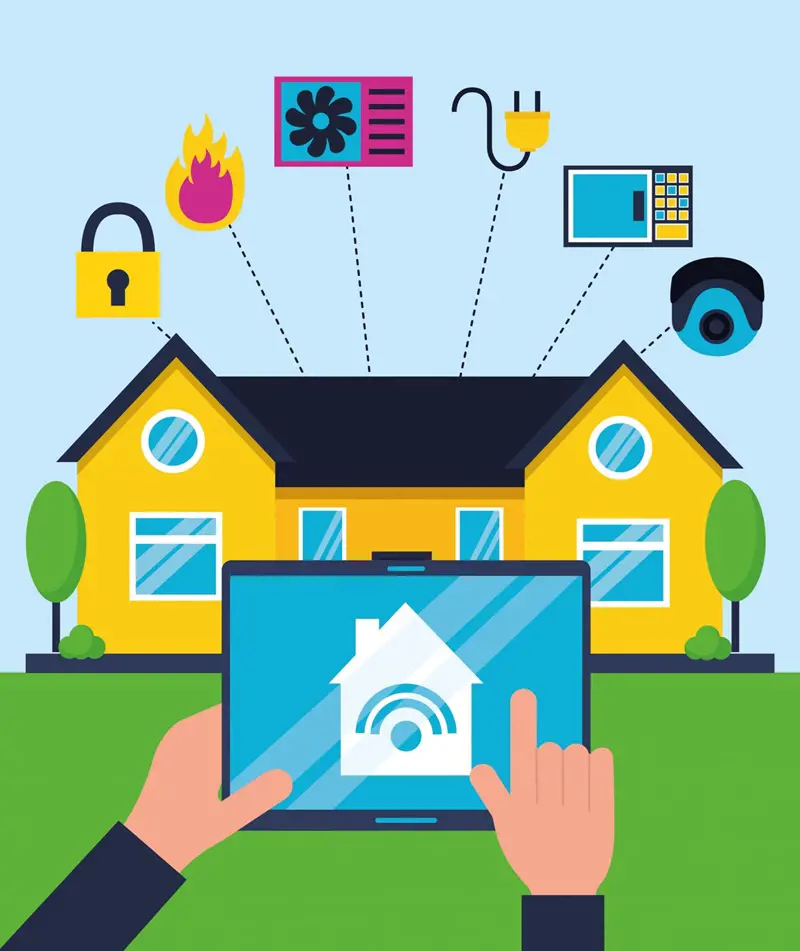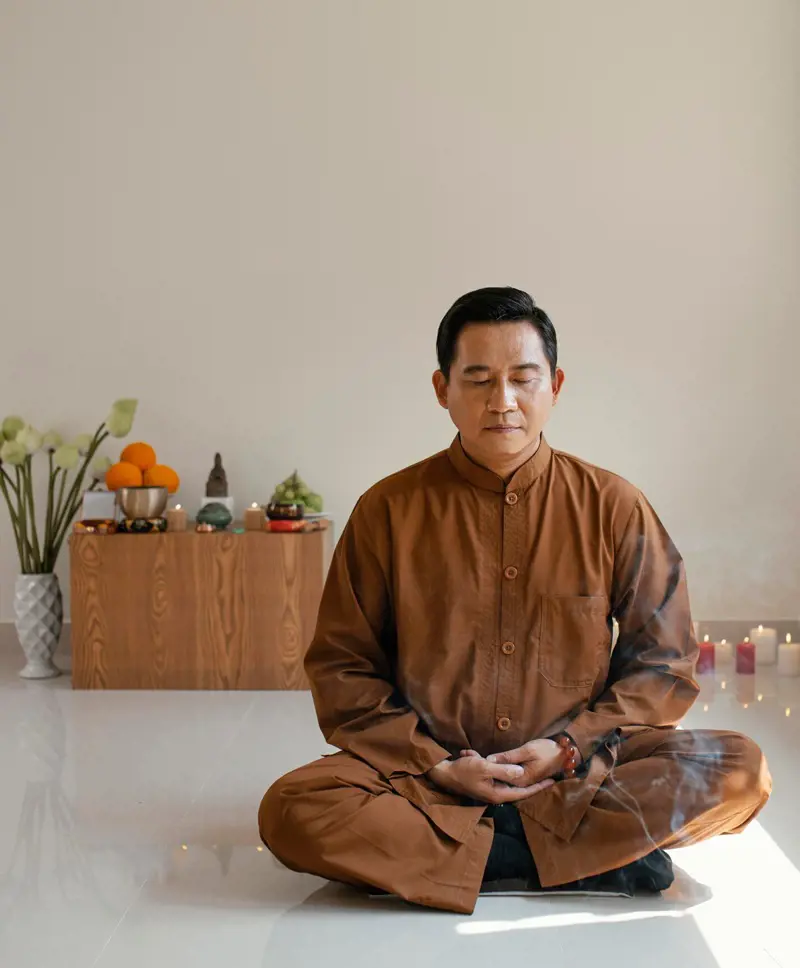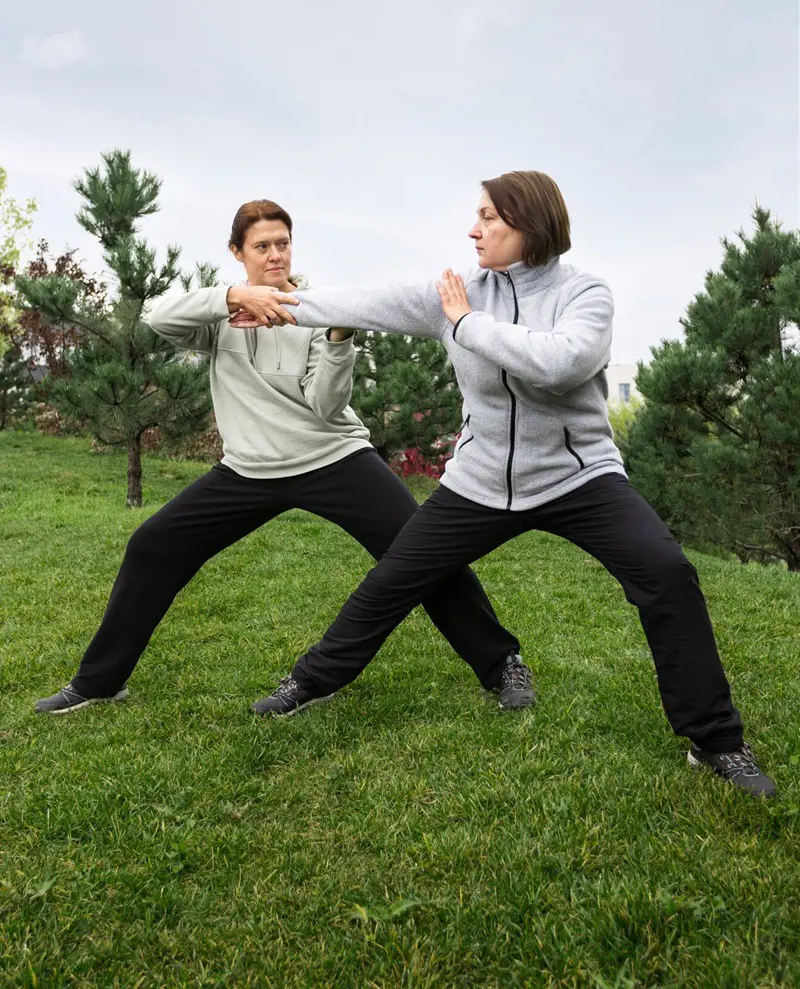
Living alone can be a daunting prospect for some, but it can also be an incredibly rewarding experience. For those who crave independence and self-reliance, living alone can be a liberating and empowering choice.
If you are considering leaping into solo living or if you've already taken the plunge but are still adjusting this comprehensive guide is for you. In it, we will cover everything you need to know about thriving on your own: from creating a safe and comfortable space to establishing a healthy routine and finding ways to connect with others.
1. Embrace Your Independence

How to learn to live alone? Well, the very first step is to embrace independence. No need to explain your desire for quiet reading, a long relaxing bath, or simply basking in silence. Indulge in activities that recharge your soul without feeling obligated to socialize.
Living alone is an opportunity to redefine your comfort zone, explore your passions, and discover the joy of self-sufficiency. Embrace the independence, personalize your space, and revel in the quiet moments of self-discovery. It's your journey, your haven, and your chance to truly blossom as your own person.
2. Get To Know Your Neighbors

Getting to know your neighbors can be an invaluable tip for anyone living alone, adding a layer of safety, support, and even unexpected friendship to your solo journey. If you have a sudden lockout, plumbing issue, or medical emergency, having a neighbor you trust can be a lifesaver.
When you're away, friendly neighbors can keep an eye out for suspicious activity or even water your plants. Knowing someone is looking out for your place can bring immense peace of mind.
3. Cook For Yourself

If you are wondering about how to live alone forever, then you must consider knowing cooking skills. Put on some music, light some candles, and make cooking a mini-celebration. Pour yourself a glass of wine, enjoy the process, and savor the delicious results.
Keep a well-stocked pantry with essentials like rice, pasta, canned goods, and spices. Consider cooking in batches and storing leftovers in the freezer. This can save time on busy days and prevent the temptation of ordering takeout.
4. Get A Pet

Let's face it, coming home to an empty house can feel isolating sometimes. A furry friend greets you at the door, tail wagging or purring contentedly, instantly chasing away those lonely blues.
Getting a pet can be an amazing addition to your solo living experience, adding companionship, routine, and even a furry or feathered reason to get out and about. Studies have shown that interacting with pets lowers stress and anxiety, and even releases feel-good hormones like oxytocin.
5. Create a Budget

Flying solo means freedom, but it also brings financial responsibility. Creating a budget becomes your superhero cape, empowering you to conquer expenses and build a secure nest egg.
Take control of your finances with some budgeting tips. Track your expenses, set savings goals, and learn to cook and shop efficiently. Living alone empowers you to be financially responsible and reap the rewards of your smart choices. Regularly review your budget and spending.
6. Master Time Management

Don't underestimate the power of a well-structured schedule and effective time management. Block out time for work, chores, leisure, and social activities. Use techniques like the Eisenhower Matrix to categorize tasks based on urgency and importance, tackling the high-priority ones first.
Identify and eliminate distractions like social media notifications, excessive TV watching, or constantly checking your phone. Use tools like website blockers or designated "focus time" periods to stay on track. Also, schedule regular breaks throughout the day to refresh your mind and prevent burnout.
7. Emergency Preparedness

Make sure your medical history and emergency contact information are easily accessible, even if you are incapacitated. Let someone know when you will be away for extended periods and provide them with your itinerary and emergency contact information.
Sign up for emergency alerts in your area and keep track of weather warnings or other potential threats. Have a clear escape plan in case of fire or other emergencies. Practice it regularly with family or friends.
8. Invest in Security Measures

Consider a professionally monitored security system or a DIY option with features like door and window sensors, motion detectors, and an alarm. Invest in sturdy deadbolts and reinforced door frames for all exterior doors. Install peepholes and consider secondary locking mechanisms like door chains.
Smart locks, lights, and cameras can be controlled remotely, deterring break-ins and giving you peace of mind. Avoid posting revealing information about your whereabouts or valuables online.
9. Learn to Enjoy Your Own Company

Set aside time regularly for self-reflection. This can be a moment of introspection to understand your thoughts, feelings, and personal goals. Take yourself on outings you've been curious about, from visiting museums and art galleries to trying a new restaurant or exploring a nature trail.
Dive into hobbies you have always wanted to try, whether it's painting, playing an instrument, learning a new language, or writing. Pamper yourself with relaxing baths, DIY spa treatments, or cozy reading sessions with your favorite book.
10. Practice Mindfulness

Wake up a few minutes earlier and dedicate some time to mindful breathing or meditation. Focus on your breath, the sensations in your body, and the sounds around you. This sets the tone for a present-focused day.
Be aware of negative self-talk and gently challenge those thoughts. Replace them with positive affirmations and focus on your strengths and resilience. Take mindful walks in nature, whether it's in a nearby park or a quiet neighborhood.
11. Invest in Quality Furniture

Investing in quality furniture is a pivotal aspect of creating a comfortable and inviting living space when you're on your own. Since you will likely be spending a significant amount of time at home, choosing furniture that is both durable and ergonomic is crucial.
Consider pieces that not only reflect your personal style but also contribute to your overall well-being. A comfortable mattress and supportive chair, for example, can greatly enhance your physical health and daily comfort.
12. Maintain a Healthy Work-Life Balance

It is easy for boundaries to blur when your living space doubles as your workspace. Establishing a dedicated work area within your home can help create a clear distinction between your professional and personal life.
Set specific working hours, just as you would in a traditional office setting. And make a conscious effort to step away from work-related tasks during non-working hours. This practice ensures that you prioritize personal time for relaxation, hobbies, and social activities, contributing to a more fulfilling lifestyle.
13. Learn Basic Self-Defense

Consider enrolling in a self-defense class or workshop to learn techniques that can help you protect yourself in unexpected situations. Understanding how to stay aware of your surroundings and having the ability to defend yourself, if necessary, can contribute to a greater sense of personal safety.
As you embark on your journey of learning self-defense, focus not only on physical techniques but also on developing a heightened sense of situational awareness. This includes recognizing potential risks and learning to trust your instincts.
14. Create a Relaxing Bedtime Routine

Creating a relaxing bedtime routine is a crucial aspect of being comfortable alone in your living space. Establishing a calming pre-sleep routine not only promotes better sleep but also contributes to overall well-being.
Start by dimming the lights in the evening to signal to your body that it's time to wind down. Engage in activities that help you relax, such as reading a book, practicing gentle stretching, or listening to soothing music.
15. Celebrate Small Wins

Be patient with yourself and celebrate your progress, no matter how small. Living alone comes with its unique set of challenges, and it's crucial to acknowledge and celebrate even the smallest victories.
Whether you successfully assembled a new piece of furniture, conquered a challenging recipe, or simply maintained a consistent workout routine, take the time to pat yourself on the back. Recognizing and celebrating these small wins builds confidence and reinforces the idea that you are fully capable of thriving on your own.
16. Master Basic Repairs

Learn to fix leaky faucets, unclog drains, or change a lightbulb. These small victories will boost your confidence and save you from relying on others for minor household tasks. Begin by familiarizing yourself with essential tools such as a screwdriver, pliers, and a wrench.
Learn how to fix a leaky faucet, tighten loose screws, or replace a doorknob. Online tutorials and DIY videos can be excellent resources for acquiring these practical skills. By understanding the fundamentals of home repairs, you not only save on maintenance costs but also gain confidence in your ability.
17. Plan Solo Travel Adventures

How to travel alone? Traveling alone requires a blend of preparedness, adaptability, and an adventurous spirit. Start by choosing a destination that aligns with your interests and comfort level. Stay connected with loved ones through messaging or video calls to share your experiences and maintain a sense of connection.
One of the joys of solo travel is the freedom to explore at your own pace. Embrace the opportunity to make decisions solely based on your interests and preferences. Be open to meeting new people and engaging in local experiences.
18. Invest in Self-Care

Whether it is a relaxing bath, meditation, or a spa day at home, self-care is essential for maintaining balance and mental well-being. Establishing a self-care routine not only contributes to your overall health but also enhances your ability to navigate the challenges and joys of solo living.
Take breaks when needed, practice mindfulness, and be kind to yourself during challenging times. Engaging in self-care rituals contributes to a balanced and harmonious life, allowing you to navigate the ups and downs of solo living with resilience and grace.
19. Stay Adaptable

Life is full of surprises, so stay adaptable and open to change. Embrace the unexpected, and view challenges as opportunities for growth. Be flexible with your plans and attitudes, as life can throw curveballs.
Adaptability also extends to your living space. Your needs and preferences may evolve over time, so be open to rearranging furniture, trying new decor styles, or even considering a change of scenery. A flexible and adaptable mindset fosters a positive living environment and encourages personal growth.
20. Remember, You Are Not Alone

Don't judge yourself for feeling lonely, stressed, or overwhelmed. These emotions are normal, especially when living alone. Acknowledge your feelings without judgment and practice self-compassion.
Stay connected with friends, family, and colleagues through regular communication. Make an effort to foster relationships and participate in social activities. Whether it is a virtual game night, a phone call with a friend, or attending community events, maintaining connections reminds you that a strong support network is just a call away.

